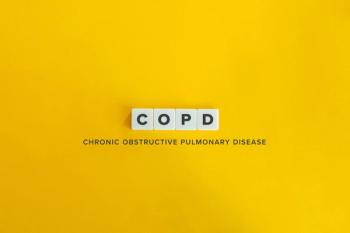
Severe Asthma Clinical Outcomes Worsen After Stopping or Changing Biologics
Findings from research presented at the American College of Chest Physicians suggest the importance of selecting the right biologic from the start.
For many with severe asthma, biologic therapy has changed the way they live with asthma. Biologics have been shown to reduce the frequency of asthma exacerbations, hospitalizations, emergency room visits, and the need for oral corticosteroids in individuals who once had poor asthma control and difficult to treat symptoms. Rather than treating symptoms and exacerbations after they occur, biologics target different cytokines, antibodies, and pathways to prevent asthma symptoms and exacerbations.
However, a patient’s response to a biologic depends on their asthma phenotype. Therefore, choosing the right biologic is crucial for ensuring therapy success. Challenges in determining patient phenotypes can lead to switching or stopping biologic therapy.
In the CLEAR study, an observational, multicenter study, researchers compared the clinical outcomes and emergency healthcare resource utilization in patients with severe asthma who switched, stopped, or continued biologic therapy. Findings were presented at the
The study included 1,859 adults with severe asthma enrolled in the International Severe Asthma Registry from December 2015 through August 2021. Eligible patients had initiated biologic treatment, and the researchers analyzed data from at least 12 months before and 6 months after therapy initiation. Patients were grouped according to whether they continued biologic use (used the first biologic for 6 months or longer), switched biologics (stopped the first biologic less than 6 months after treatment initiation and began using a different biologic), or stopped biologic use (discontinued the first biologic less than 6 months after initiating treatment and did not begin therapy with a new biologic).
The study found that patients who switched or stopped biologic therapy had a higher risk of asthma exacerbation compared with participants who continued treatment. These groups were also more likely to have uncontrolled asthma than those who continued biologic therapy. Additionally, participants who switched biologics had more hospitalizations and emergency room visits and were less likely to have long-term oral corticosteroid dose reduction than patients who continued treatment.
The researchers concluded that switching or stopping biologic treatment in patients with severe asthma leads to worse clinical outcomes and higher emergency healthcare resource utilization versus continuing treatment with the same biologic. They emphasize “the importance of selecting the right initial biologic for continual therapy.” The authors also suggest that “Biologics targeting multiple inflammatory pathways may address the limitations of phenotyping, which may reduce therapy stopping or switching.”
Newsletter
Pharmacy practice is always changing. Stay ahead of the curve with the Drug Topics newsletter and get the latest drug information, industry trends, and patient care tips.























